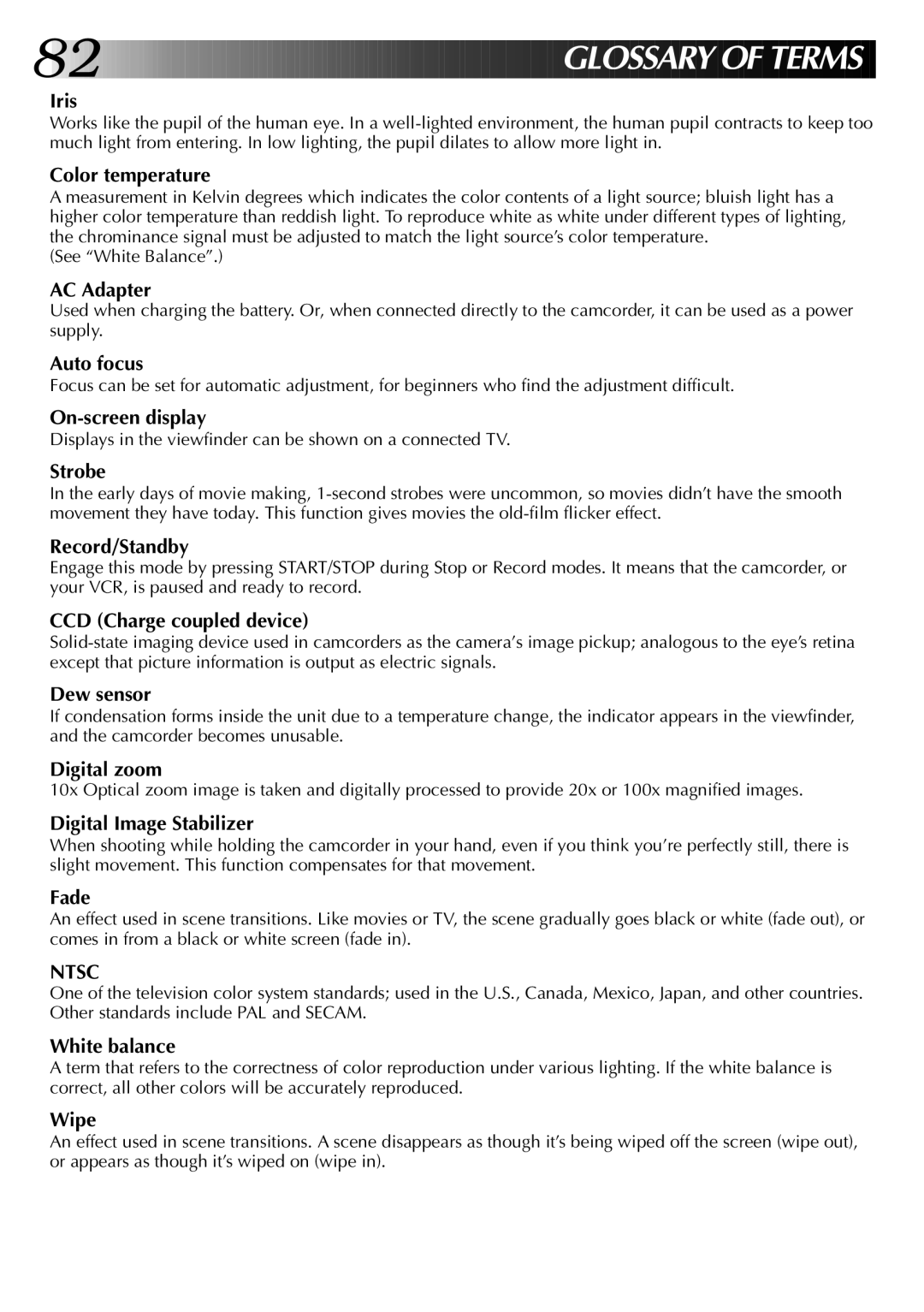82![]()
![]()
![]()
![]()
![]()
![]()
![]()
![]()
![]()
![]()
![]()
![]()
![]()
![]()
![]()
![]()
![]()
![]()
![]()
![]()
![]()
![]()
![]()
![]()
![]()
![]()
![]()
![]()
![]()
![]()
![]()
![]()
![]()
![]()
![]()
![]()
![]()
![]()
![]()
![]()
![]()
![]()
![]()
![]()
![]()
![]()
![]()
![]()
![]()
GLOS SARY
SARY OF
OF TERMS
TERMS
Iris
Works like the pupil of the human eye. In a
Color temperature
A measurement in Kelvin degrees which indicates the color contents of a light source; bluish light has a higher color temperature than reddish light. To reproduce white as white under different types of lighting, the chrominance signal must be adjusted to match the light source’s color temperature.
(See “White Balance”.)
AC Adapter
Used when charging the battery. Or, when connected directly to the camcorder, it can be used as a power supply.
Auto focus
Focus can be set for automatic adjustment, for beginners who find the adjustment difficult.
Displays in the viewfinder can be shown on a connected TV.
Strobe
In the early days of movie making,
Record/Standby
Engage this mode by pressing START/STOP during Stop or Record modes. It means that the camcorder, or your VCR, is paused and ready to record.
CCD (Charge coupled device)
Dew sensor
If condensation forms inside the unit due to a temperature change, the indicator appears in the viewfinder, and the camcorder becomes unusable.
Digital zoom
10x Optical zoom image is taken and digitally processed to provide 20x or 100x magnified images.
Digital Image Stabilizer
When shooting while holding the camcorder in your hand, even if you think you’re perfectly still, there is slight movement. This function compensates for that movement.
Fade
An effect used in scene transitions. Like movies or TV, the scene gradually goes black or white (fade out), or comes in from a black or white screen (fade in).
NTSC
One of the television color system standards; used in the U.S., Canada, Mexico, Japan, and other countries. Other standards include PAL and SECAM.
White balance
A term that refers to the correctness of color reproduction under various lighting. If the white balance is correct, all other colors will be accurately reproduced.
Wipe
An effect used in scene transitions. A scene disappears as though it’s being wiped off the screen (wipe out), or appears as though it’s wiped on (wipe in).
